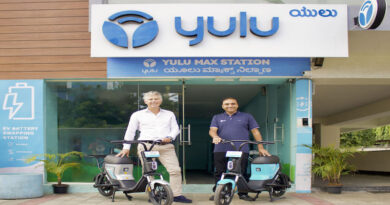India Patent trends for Hydrogen Fuel Cells for automobiles

Hydrogen is the most abundant element in the universe and holds a lot of potential as a fuel source for our transportation needs. Although hydrogen is relatively easy to manufacture, its storage and transportation have been a challenge. This article by Govind Kedia, Managing Director at Arctic Invent, touches upon the patenting activity related to hydrogen-fuelled vehicles in India.
Hydrogen fuel cell technology for transportation – patenting activity in India
The interest in Hydrogen increases whenever petroleum prices go up. We first saw sustained interest in hydrogen-based fuel cells way back in the 1980s. Since then, companies have invested in developing hydrogen-based fuel cell technology for transportation. The commercialisation of the technology in recent years is anticipated to keep the interest in the technology sustained over the next few decades.
We analysed around 1800 patent families related to hydrogen fuel cells in automobiles that have been filed and published in India over the past 40 years. Out of them, 68.92% have been granted while 15.96% are still in the prosecution stage, as shown in the below graphical representation:

Patent application filing trends in India since the 1980s
Patent applications related to hydrogen cells have been filed in India since the 1980s. After a few years of interest, patent application filing stopped till the mid-1990s. And since then, we have seen a steady increase in patent filings in India. (Refer to the figure below)


Top 20 Companies that filed most patents
Toyota and Honda are two companies that lead in filing patents in India in this area of interest. Both these companies have been at the forefront of research related to incorporating Hydrogen Fuel Cell technology in automobiles. Honda has been testing vehicle models since the 1990s that run on Hydrogen.
With the launch of Toyota Mirai, a Hydrogen fuel cell vehicle, in India, the company is expected to double down on the technology.
From the figure given below, we also see chemical manufacturing companies like LG and Sumitomo and fuel cell companies like Bloom Energy filing patent applications in India. It is not unusual for companies to try to extend their invention across the value chain, even if that is not their core business.

Legal Status of the patent application filed by the top 20 companies
Patents do not last forever. They expire after 20 years from the first date of filing the patent application. The number of granted and pending applications indicates a company’s interest in the area of technology and in the country as a business destination.
– More the number of pending applications, the more recent the interest in India and the investment in technology. (e.g. Sanyo Electric from the figure below)
– More expired or dead patent applications indicate a waning interest in either India as a business destination or a lack of interest in the technology itself. (e.g. Audi and Enerday from the figure below)
We also gather that most of the top 20 patent filing companies have an ongoing interest in the technology and are betting on India as a good business destination.

Some examples of patents related to hydrogen fuel cells
Assignee: Honda motor co., ltd.
Title: Hydrogen fill inlet structure for fuel cell vehicle
The invention claimed in this patent covers a fuel cell incorporated in a vehicle, including a hydrogen cylinder, a fuel cell for generating electrical power based on the hydrogen gas supplied from the hydrogen cylinder, and a motor to generate propulsion to supply to the driving wheels.
Assignee: Honda Motor
Title: Fuel-cell-powered four-wheel automobile
The invention disclosed in the above patent covers a hydrogen fuel cell powered four-wheeled automobile in which hydrogen is generated from methanol stored in a tank, and the electricity is generated via a centralized mechanism from the generated hydrogen and the oxygen in the air.
Assignee: Honda Motor
Title: Fuel cell electric vehicle
The above-mentioned patent covers a fuel cell electric vehicle, including a fuel cell for generating electric power by reacting hydrogen and oxygen, a hydrogen cylinder arranged longitudinally above the driving wheel, and a motor for generating motive power to be supplied to the driving wheel.
Assignee: Honda Motor Co Ltd
Title: A motorcycle with a fuel battery mounted thereon
The invention claimed in this patent covers a fuel battery mounted motorcycle that has a lower centre of gravity by disposing a reformer for generating hydrogen, together with a fuel battery and a secondary battery, in a lower portion of the floor of the motorcycle.
Conclusion
Hydrogen fuel cell technology has had a very long road to commercialization. With the launch of new vehicles by big global companies, there is renewed interest in the technology area. Our analysis of the patent filing trends in India also indicates that automobile and chemical manufacturing companies are investing heavily in furthering the technology. We hope to see new vehicles using hydrogen fuel cell technology being launched in the near future.
Also Read: How India can potentially take a dominant position in adopting Green Hydrogen
Subscribe & Stay Informed
Subscribe today for free and stay on top of latest developments in EV domain.







Pingback: Hydrogen and derived e-fuels - the vaccine we need for climate change • EVreporter
Pingback: [The Viewpoint] Green Intellectual Property and Automobile Sector – Green Reporter
Pingback: [The Viewpoint] Green Intellectual Property and Automobile Sector